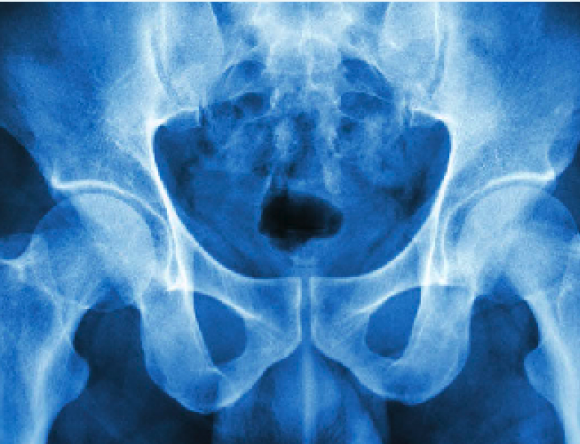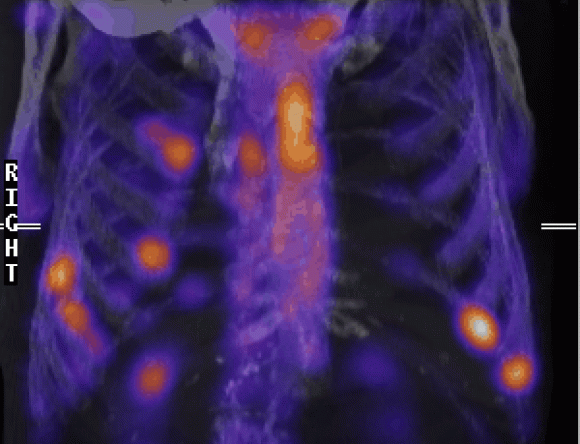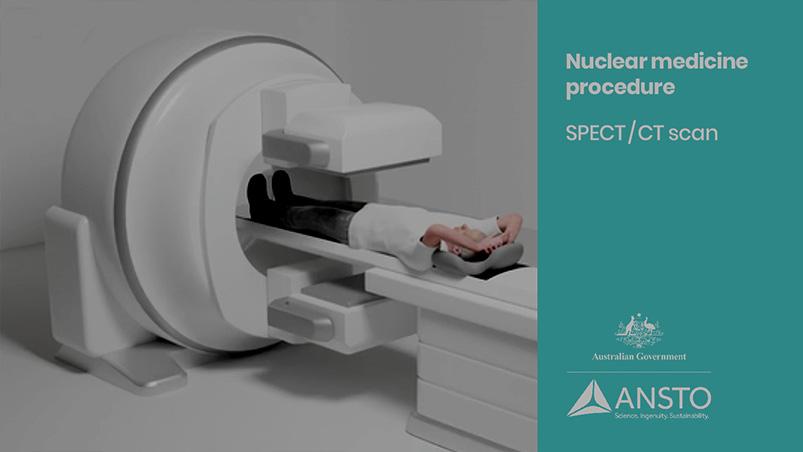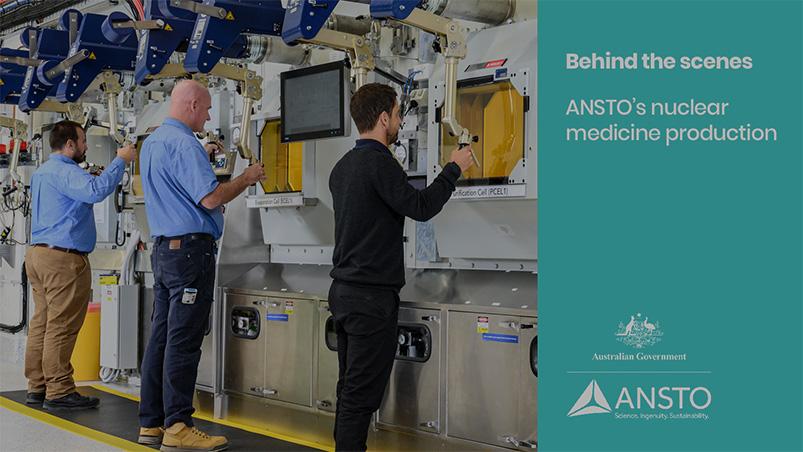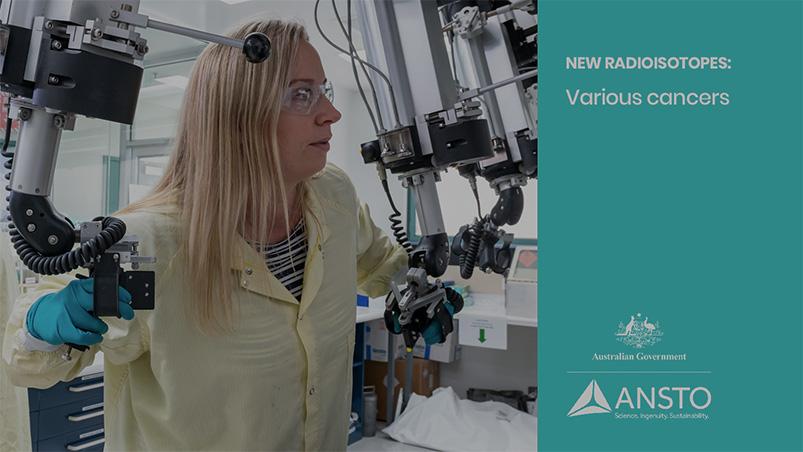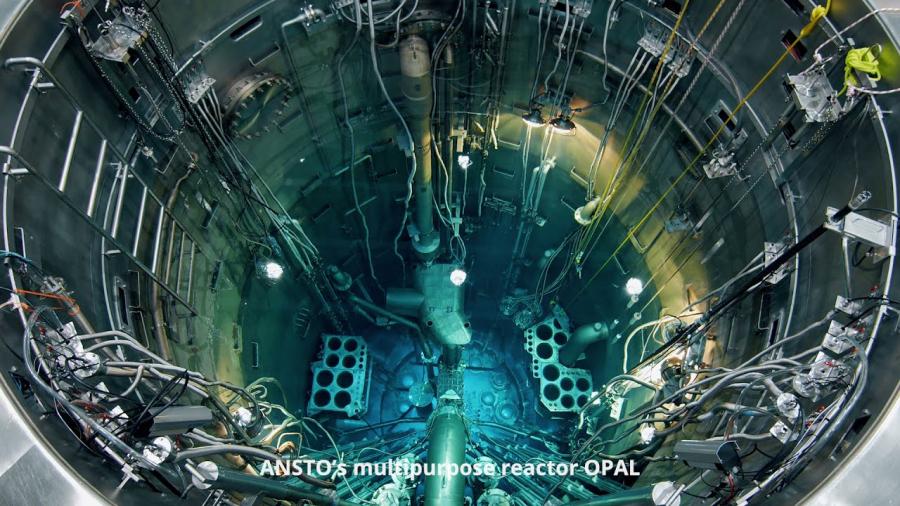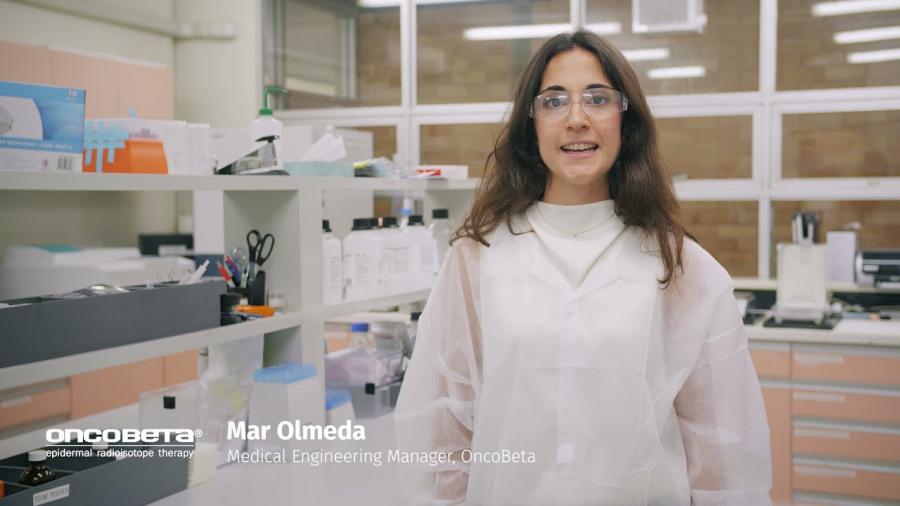What should you expect during a nuclear medicine procedure?
Nuclear medicine uses small amounts of radioactive materials (radioisotopes) that travel through a patient’s body to the area being examined and gives off gamma rays that are detected by a camera. The image created help diagnose and understand diseases of different organs and tissues, including cancer, to improve treatment and outcomes. An increasing range of nuclear medicines are used for therapy.
What is ANSTO’s role in nuclear medicine production?
Australia is one of the very few nations in the world to produce the radioisotopes necessary for nuclear medicine procedures.
On average, ANSTO’s radioisotopes provide 10,000 - 12,000 nuclear medicine procedures that benefit Australians each week*.
-
New radioisotopes:
Various cancers
ANSTO researchers are working with both Australian and international companies to develop the next generation of nuclear medicines to treat cancers and other serious illnesses. These include research into scandium-47 which can be used for both imaging and therapy and terbium-161 which may be able to treat very small cancer metastases.
-
Lutetium-177:
Prostate cancer and melanoma
ANSTO is the supplier of non-carrier added (n.c.a) Lutetium-177 (Lu-177) used in prostate cancer and melanoma clinical trials being undertaken by ANZUP Cancer Trials Group, Peter MacCallum Cancer Centre and Melanoma & Skin Cancer Trials.
-
Radioimmunotherapy:
Solid tumours
ANSTO researchers are working with a Sydney-based company GlyTherix on new radioimmunotherapy treatments. Radioimmunotherapy is a combination of immunotherapy, which uses antibodies that specifically target cancer cells, and radioisotopes that can help see and kill cancer cells.
-
Rhenium SCT (Skin Cancer Therapy):
Non-melanoma skin cancers
ANSTO will be the manufacturing partner in Australia for OncoBeta, a Germany based company. OncoBeta’s medical device uses rhenium-188 (a Beta emitting radioisotope) to treat non-melanoma skin cancers. The OncoBeta product will be the first of its kind to be launched in Australia.
Health products
ANSTO manufacture and supply a range of radiopharmaceuticals, radiochemicals, kits and accessories for use in research, industry and the health sector.
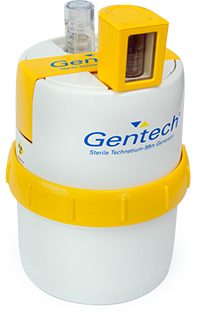
*Based on published Medicare Benefits Schedule (MBS) statistics combined with non-MBS data sourced from the nuclear medicine community

